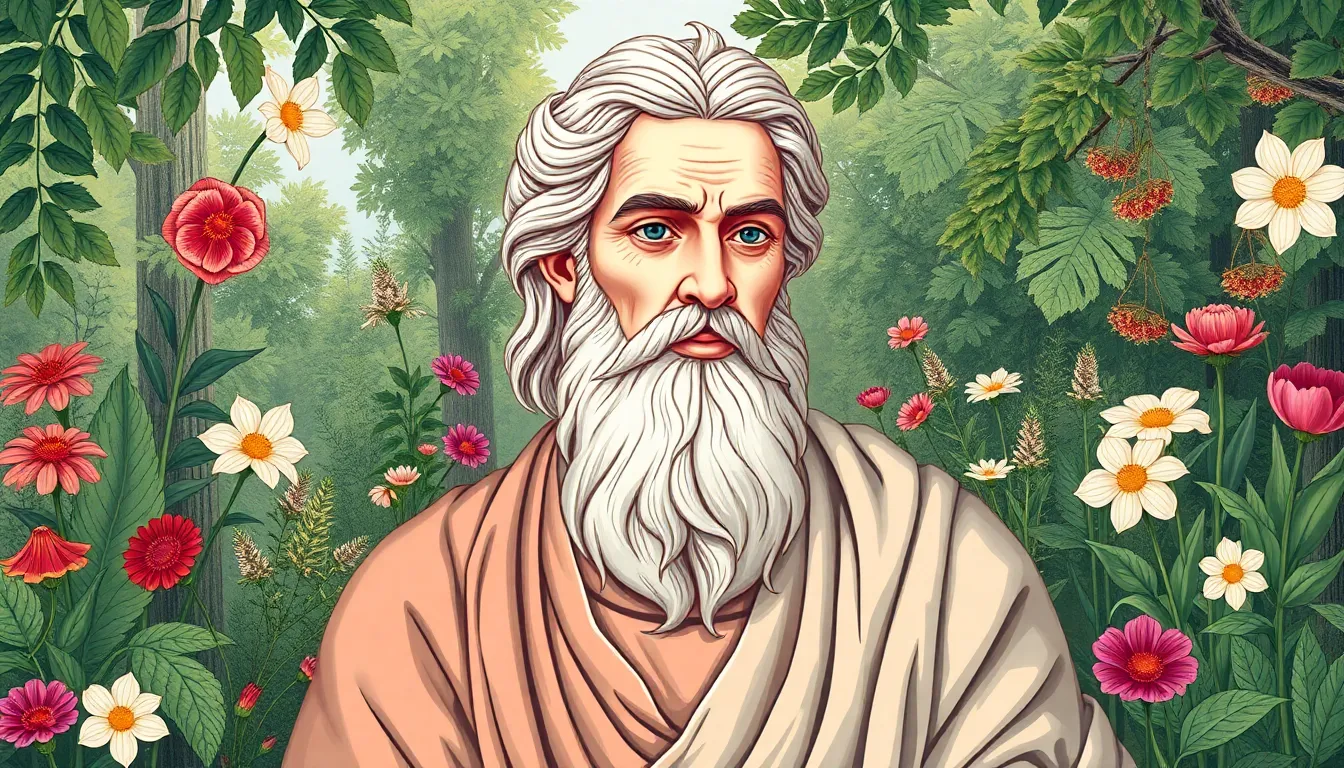The Best Fluffy Pancakes recipe you will fall in love with. Full of tips and tricks to help you make the best pancakes.

Father of Botany: Discover Theophrastus’s Impact on Modern Plant Science
When it comes to the world of plants, one name stands tall among the greenery—Theophrastus. Often dubbed the “Father of Botany,” this ancient Greek philosopher didn’t just have a green thumb; he had a whole garden of knowledge. Imagine a time when people were still figuring out which end of a carrot to plant. Theophrastus swooped in like a superhero, cataloging plants and their properties, making him the ultimate plant whisperer.
His groundbreaking work laid the foundation for modern botany, turning the study of plants from mere curiosity into a serious science. With a dash of humor and a sprinkle of wisdom, he brought plants into the spotlight, proving that studying nature could be as fascinating as binge-watching a new series. So, let’s dig deeper into the life and legacy of this botanical pioneer, because every plant lover owes a debt of gratitude to the man who helped us understand the leafy wonders around us.
Father Of Botany
Theophrastus is widely recognized as the “Father of Botany.” Born in 371 BCE, he became a student of Aristotle and significantly advanced the understanding of plant life. His text, Historia Plantarum, systematically categorized over 500 species. This work laid the groundwork for future botanical studies and established fundamental concepts still used today.
Theophrastus emphasized characteristics of plants, such as their structure, growth patterns, and habitats. Through detailed observations, he classified plants based on their physical traits, medicinal properties, and ecological roles. His meticulous approach transformed the field from mere observation into a disciplined science.
Notably, he distinguished between different plant types, including trees, shrubs, and herbs. This classification system helped future botanists understand the diversity of plant life. Theophrastus also explored plant reproduction, seed dispersal, and the influence of soil on growth, presenting ideas that resonated throughout the centuries.
Recognizing his contributions helps appreciate the foundation upon which modern botany stands. His influence extends beyond his era, impacting disciplines like horticulture and agriculture. Scholars and enthusiasts continue to study Theophrastus’s works, acknowledging his profound impact on botanical sciences. References to his findings appear in many contemporary plant biology texts, cementing his legacy as a pivotal figure in the history of botany.
Historical Background

Theophrastus’s work set a crucial foundation in botany. His meticulous approach to studying plant life sparked significant advancements.
Contributions To Early Botany
Theophrastus cataloged over 500 plant species in his seminal work, Historia Plantarum. This text provided comprehensive descriptions of plants and investigated features like structure, growth patterns, and habitats. He pioneered a classification system based on physical traits and medicinal properties, significantly influencing the organization of botanical knowledge. Scholars look to his observations of plant reproduction and ecological factors, reinforcing understanding in horticulture and agriculture. His explorations laid the groundwork for future botanists, ensuring that the study of plants transitioned into a scientific discipline.
Influence Of Ancient Civilizations
Ancient civilizations played a vital role in shaping Theophrastus’s contributions. Greek philosophers, particularly Aristotle, laid the intellectual groundwork for his studies. The knowledge accumulated by these societies influenced his classification of plants and understanding of their medicinal uses. Romans expanded on Theophrastus’s work, ensuring its dissemination throughout their empire and ensuring that it reached later scholars. Through translations and commentaries, the legacy of these civilizations preserved Theophrastus’s ideas for future generations. Thus, the blending of ancient knowledge and Theophrastus’s findings created a lasting impact on the field of botany.
Key Works And Discoveries
Theophrastus made groundbreaking contributions to botany, particularly through his influential texts and classification systems. His works set the cornerstone for modern botanical studies.
“Historia Plantarum”
“Historia Plantarum” stands as Theophrastus’s most significant achievement. This text catalogs over 500 plant species, providing detailed descriptions. He analyzed plants’ structures, habitats, and uses, enabling readers to understand their diversity. The work is divided into ten books, each addressing different aspects of plant life, from growth habits to medicinal uses. With systematic observations, he laid the foundation for future botanical inquiry, cementing his role in establishing botany as a scientific discipline.
Classification Systems
The classification systems proposed by Theophrastus sought to categorize plants based on various characteristics. He distinguished between trees, shrubs, and herbs, focusing on their physical traits and ecological roles. By observing how plants grow, reproduce, and interact with their environments, he created categories that aided future botanists. This systematic approach enhanced the understanding of plant relationships and spurred innovation in the field. His early classification efforts profoundly impacted the organization of botanical knowledge, setting the stage for ongoing research in taxonomy.
Legacy And Impact
The legacy of Theophrastus continues to shape botany today. His meticulous cataloging of plant species set a standard for classifications and descriptions in the scientific community.
Influence On Modern Botany
Modern botany owes much to Theophrastus’s foundational work. He established early taxonomy, which influences the classification of plants. Concepts such as habitat analysis and ecological roles reflect his insights. Botanists still reference his classifications in contemporary studies. Additionally, methods he employed in studying plant morphology set the groundwork for current botanical research. His writings serve as primary sources for understanding plant diversity and adaptations. The impact of his studies is evident in botanical gardens and academic curricula around the globe.
Recognition And Honors
The contributions of Theophrastus have garnered significant recognition over centuries. Throughout history, he has been celebrated in various forms of scholarship. Universities often honor his legacy through courses focused on plant biology and ecology. Several botanical gardens feature his work in their exhibitions. Statues and monuments commemorate his influence in the field of botany. Furthermore, the scientific community acknowledges his lasting impact with names of plant genera derived from his texts. It is evident his legacy remains vital in the advancement of botany and related fields.
Conclusion
Theophrastus’s contributions to botany remain invaluable. His systematic approach and classification methods laid a solid foundation for the field, shaping how plants are studied today. His insights into plant structure and ecology continue to influence modern research and education.
As the “Father of Botany,” Theophrastus’s legacy is evident in the ongoing exploration of plant life. His works not only advanced scientific inquiry but also inspired generations of botanists to understand and appreciate plant diversity. The enduring impact of his studies ensures that he will always be remembered as a pivotal figure in the history of botany.
